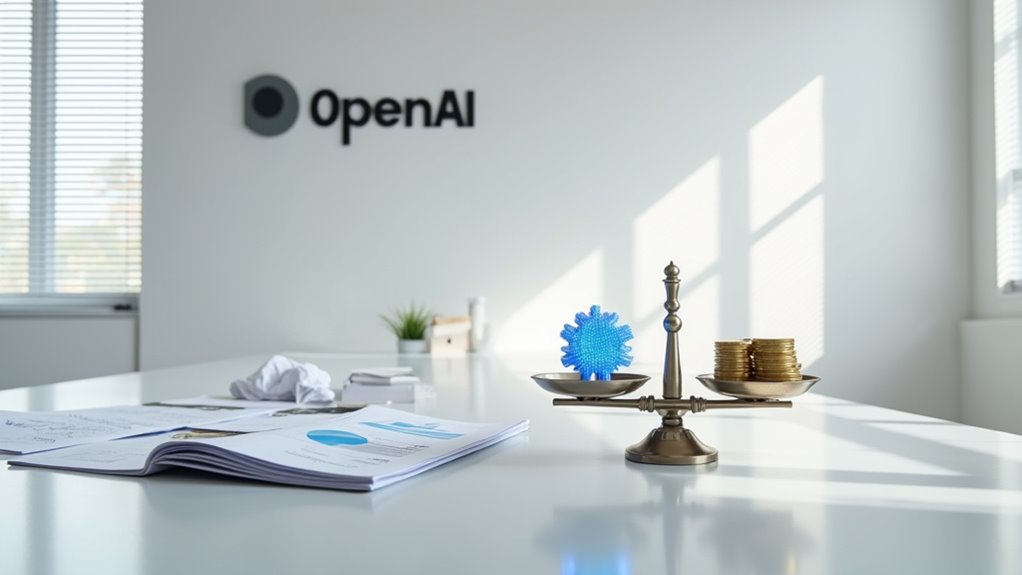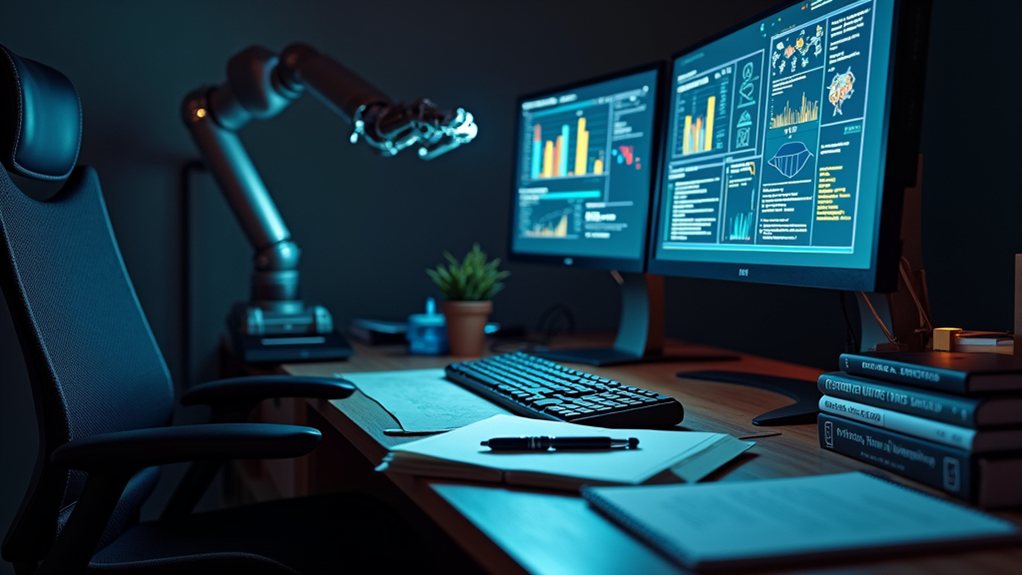Human-centered AI focuses on augmenting human capabilities rather than replacing them. It’s transforming society by personalizing everything from healthcare to education, while prioritizing transparency and human control. Instead of the robot overlord scenario we all dread, these systems collaborate with humans—freeing us from mundane tasks so we can focus on creative problem-solving. When designed thoughtfully with diverse perspectives, AI can create more equitable and efficient solutions. The technological future doesn’t have to be dystopian after all.
Revolution—not the robot uprising kind—is reshaping how we design artificial intelligence today. Developers are finally asking the radical question: “What if AI actually served humans instead of the other way around?” This approach, aptly named human-centered AI, puts people’s values, needs, and experiences at the forefront of development rather than treating them as pesky variables in an otherwise perfect system.
The core principle is invigoratingly simple: augment human capabilities instead of replacing them. Think Iron Man’s JARVIS, not Terminator’s Skynet. These systems are designed to collaborate with humans, providing insights while letting people maintain control. Your smartphone suggesting routes based on traffic? That’s human-centered AI in action—helping you make better decisions without demanding you surrender the wheel.
Human-centered AI empowers rather than replaces, collaborating like JARVIS instead of controlling like Skynet.
Trust matters enormously in this relationship. Users need to understand *why* AI makes specific recommendations. Transparency builds confidence, and confidence drives adoption. After all, who wants to use technology they suspect might secretly harbor HAL 9000’s personality traits?
The economic and social benefits could be substantial. Health monitoring systems adapt to individual needs, educational platforms personalize learning experiences, and predictive analytics help manage everything from traffic flows to pandemic responses. The goal isn’t replacing workers but freeing them from mundane tasks so they can focus on what humans do best—creative thinking and complex problem-solving. In healthcare specifically, AI diagnostics systems can now predict cardiac events before symptoms appear, potentially saving countless lives through preventative interventions.
Of course, challenges remain. Designing truly unbiased systems requires vigilance, and finding the right balance between automation and human oversight isn’t easy. There’s also the persistent worry about job displacement—though history suggests technology tends to transform work rather than eliminate it entirely. Organizations implementing human-centered AI must involve users through surveys and focus groups to genuinely understand their experiences and needs.
For this approach to succeed, multidisciplinary collaboration is essential. Engineers need insights from psychologists, sociologists, and designers to create AI that genuinely serves human needs. By involving actual users in the development process, solutions become more relevant and effective. The future of Human-Centered AI involves the integration of emotional intelligence to create systems that better understand human contexts and respond appropriately to user needs.
The future of AI doesn’t have to be dystopian. With thoughtful, human-centered design, it might just help us build a society that’s more efficient, equitable, and humane.









